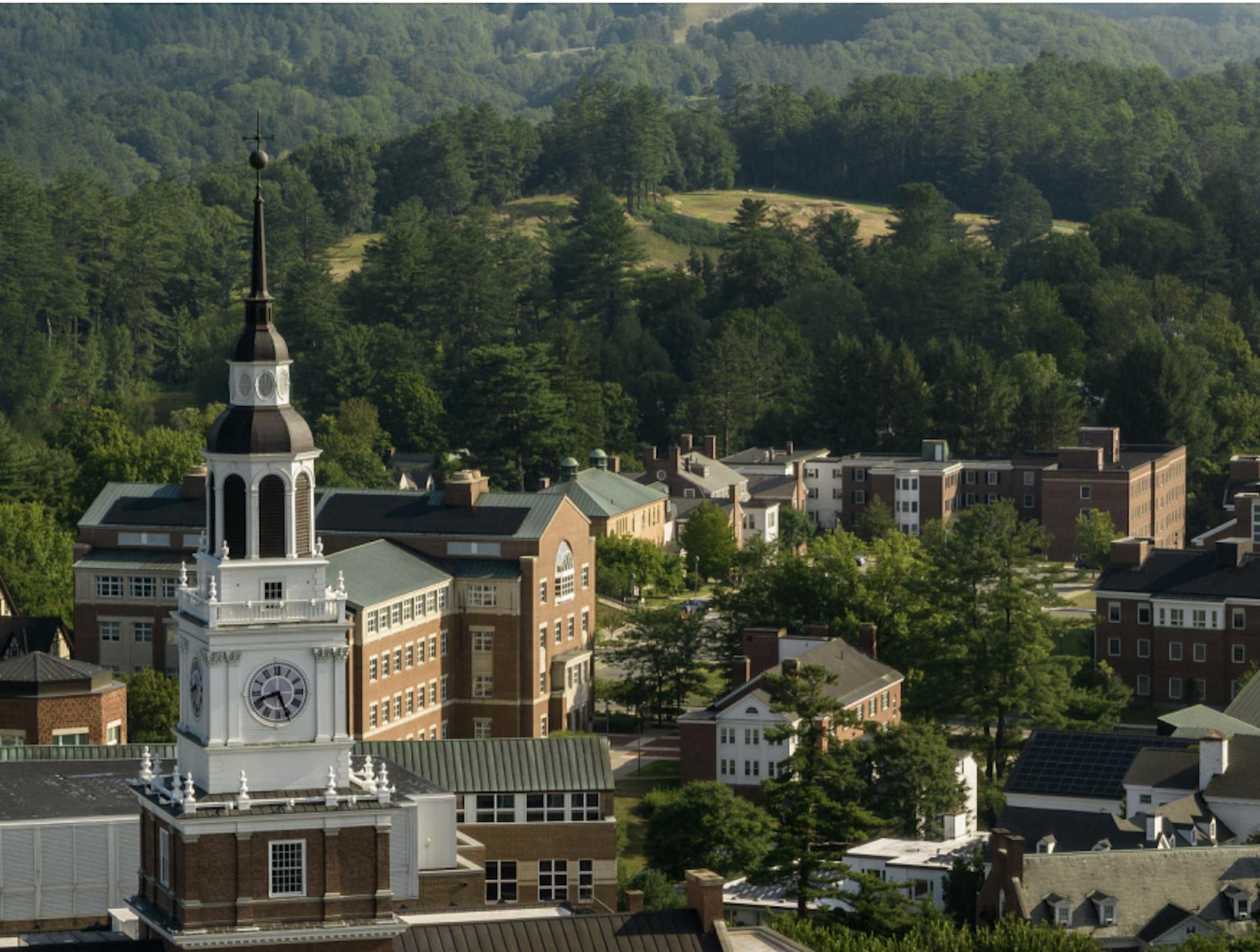In an email to campus today, College President Sian Leah Beilock announced the Dartmouth Climate Collaborative, a “comprehensive” and data-driven project meant to “address climate change in meaningful and sustainable ways.” In her email, Beilock highlighted the Climate Futures Initiative, a year-long effort launched last week that aims to identify and build on Dartmouth’s current strengths in climate scholarship.
As part of the Dartmouth Climate Collaborative, the College will invest more than $500 million in capital improvements to its physical plant over the next five years to reduce campus emissions, Beilock wrote. According to senior vice president for capital planning and campus operations Josh Keniston, the College has increased its decarbonization goals to a 60% reduction in emissions by 2030 and a 100% reduction by 2050 — compared to the 2017 goals of a 50% reduction by 2025 and an 80% reduction by 2050. The investment is the largest focused on sustainability in the College’s history, Beilock added.
The Dartmouth Climate Collaborative will coordinate with an advisory council composed of alumni, faculty, students and a member of the community group Sustainable Hanover, according to Beilock’s email. The council will be led by anthropology professor Laura Ogden and Sustainability Office director Rosi Kerr, and it will report to Keniston and Provost David Kotz, according to Keniston.
Keniston said recent reports from the United Nations’s Intergovernmental Panel on Climate Change made it clear that the College “had to go beyond” its previous emissions goals.
“I think it’s not necessarily that our previous goals were wrong,” Keniston said. “It’s just that we now have a deeper understanding of what the levers are, and I think we’re updating our goals accordingly.”
Keniston added that the College has historically had “very separate initiatives” on climate change for academic research and campus operations. He said the Dartmouth Climate Collaborative aims to better coordinate these two aspects of the College’s climate work by incorporating on-campus operational investments into research and teaching.
Keniston said the College’s new decarbonization efforts will consist of “two main strategies.” The first, he said, is energy efficiency, which he described as “[reducing the College’s] overall energy consumption” through initiatives such as “improving insulation in buildings or conversion from steam to hot water [heating].” According to past reporting by The Dartmouth, several buildings on campus have already been scheduled to be transitioned to hot water heating as part of summer construction.
According to Keniston, the second strategy involves producing needed energy “in a way that is zero carbon.” He said the College has been “moving on geo-exchange boreholes” and “expanding solar” energy as part of this effort.
Ogden said the Climate Futures Initiative will primarily concern “research and teaching.” She added that the “interdisciplinary” initiative will encompass “all sectors of Dartmouth’s campus,” citing the arts and humanities as pivotal to the effort.
“There’s a lot of work in the environmental humanities to not just understand climate change, but what climate change touches, and to provide avenues for understanding that in the full breadth of what we do as a liberal arts institution,” she said.
According to Ogden, the initiative will organize “formal colloquia” about “how we can better integrate climate change research on campus” beginning this year. The project will be completed by the fall of 2025, by which time Ogden said she hopes to have a set of recommendations for Beilock and Kotz.
“We would be able to say very concretely what [these recommendations] would cost, what the timelines would be and what kinds of benefits we think would come out of them,” Ogden said.
Keniston said Dartmouth’s location in a rural area with a colder climate allows the College to provide unique contributions to the field of climate science. He said the Climate Futures Initiative is “exciting” and will allow for much of the previous operational work on campus to be utilized for an academic purpose.
Kerr said her and Ogden’s role on the Advisory Council will be to assist the College’s senior leadership and Trustees with setting “ambitious” climate and sustainability goals that can “elevate” Dartmouth.
“Our job is to figure out how we leverage our liberal arts identity, our cold region location, our rural location and our strong identity as the Big Green to have an impact and contribute to solving what is undoubtedly one of humanity’s greatest challenges,” Kerr said.
Kerr added that the Sustainability Office will “drive Dartmouth towards greater operational sustainability.” She said the office is “well positioned” to build operational and organizational climate infrastructure for the College and that “setting ambitious targets” has been a priority for Beilock.
Ogden also noted that Beilock has made sustainability a priority for her administration “from day one.”
“I think what’s really exciting to me is that this commitment that [Beilock is] making to campus operations is tightly coupled with our intellectual and academic mission,” Ogden said.




